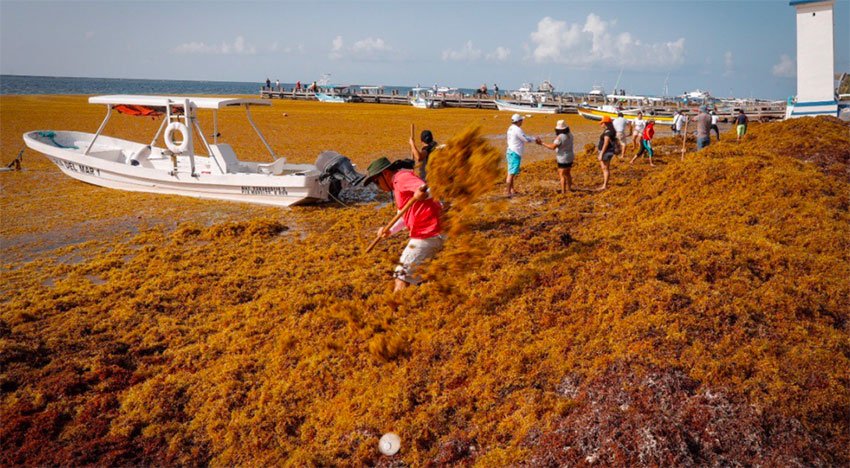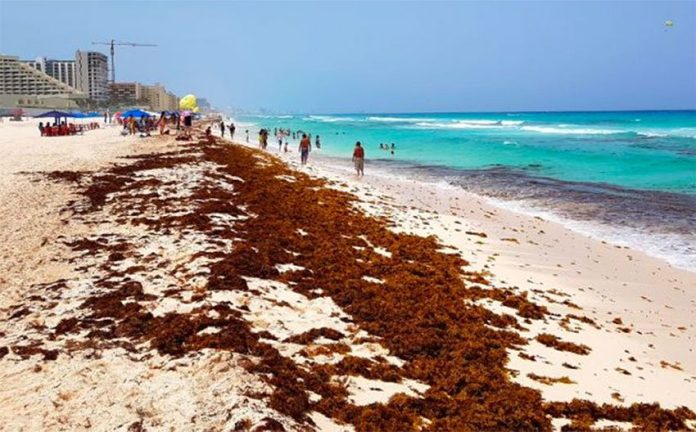The effect of sargassum on tourism and the economy is “very serious” but what should be of greater concern is the impact of the decomposition of the seaweed on the environment, according to a marine scientist.
Joel González Chiña, an oceanographer and member of the Quintana Roo sargassum advisory council, told the newspaper El Universal that the massive arrival of seaweed on Caribbean coast beaches affects the entire coastal ecosystem.
“This is a real problem, it’s serious and very big,” he said, rejecting President López Obrador’s claim that the sargassum invasion is not a very serious issue.
However, the scientist added: “we have to understand that sargassum is not the enemy – the problem is that it’s arriving in large quantities and that it accumulates on the beach and exceeds the capacity to collect it.”
“The problem is the decomposition of this macroalgae, that it generates foul odors, that it produces sulfuric acid that kills sea grasses,” González said.

Sea grasses are a food source for turtles and provide a variety of “environmental services” including keeping sand in place, he said.
If it is killed off, “the beach erodes,” González explained, adding that the sulfuric acid generated by decomposing sargassum also has a negative impact on coral reefs that need clean water to survive.
“It’s a chain of impacts,” he said.
The oceanographer was reluctant to endorse the strategy of collecting sargassum before it washes up on beaches, explaining that while it is still in the sea, the seaweed is a living organism that is a food source for fish and other marine creatures.
González explained that the presence of sargassum is a natural response to contamination and excessive nutrients in the ocean – “the seaweed cleans those nutrients, it absorbs them . . .”
Consequently, the strategy of removing sargassum from the sea – Navy Secretary Rafael Ojeda announced this week that a new fleet of sargassum-collecting vessels will be built – “requires more studies and scientific research,” the scientist said.
Susana Enríquez, a researcher at the Institute of Marine Sciences and Limnology at the National Autonomous University, said there is currently “an abnormal enrichment of nutrients in the sea,” and that “it’s been a party for this seaweed.”
She explained that the large quantities of sargassum in the Caribbean Sea have been feeding on nutrients such as nitrogen and phosphorous that have flowed into the Atlantic Ocean from rivers such as the Amazon and Orinoco in South America.
Rising sea temperatures as a result of climate change can help sargassum to grow, Enríquez said, but “the blossoming of seaweed only comes from the increase of nutrients in the sea – that’s the ABC of oceanography.”
The researcher blamed “extremely poor environmental management” for the increasing quantity of nutrients in the ocean, explaining that deforestation for the creation of farm land has led to a greater use of agrochemicals.
“Of course, the problem is serious,” Enríquez said. “It’s regional.”
Source: El Universal (sp)
